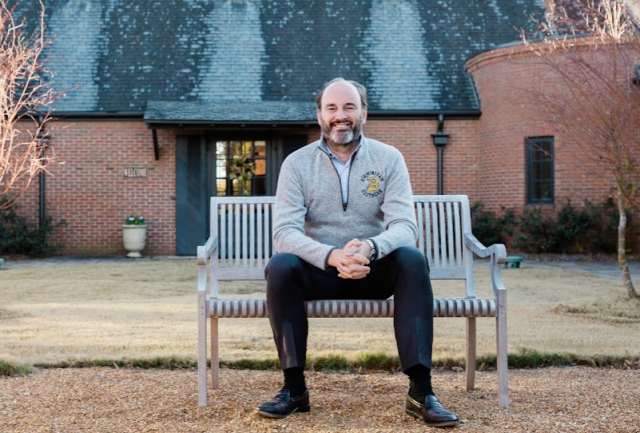By Ryan Michaels
The Birmingham Times
Birmingham Southern College could close, and the vacant campus would add to blight in the city, without help from state and local governments, the school’s President Daniel Coleman said this week.
“What if we didn’t make it, and there’s a lock on that gate and there are mothballs here [at BSC], and we’re next door to a 60-acre parking lot called Legion Field,” Coleman told The Birmingham Times in an interview on Wednesday. “And while Legion Field’s a wonderful place — and I went to plenty of games there as a kid — not much good [happens] on a 60-acre parking lot, 350 days a year.”
Legion Field Stadium is located less than 2 miles from the BSC campus.
Coleman said BSC’s endowment still needs significant funds and he sent a letter to state and local lawmakers in late 2022 to seek nearly $40 million to keep the school open.
The $37.5 million request is only part of a push to bring in a total of $200 million for the school, of which $45 million has been promised by private donors, AL.com has reported.
BSC is asking for $30 million from the state of Alabama, approximately $5 million from Birmingham and $2.5 million from Jefferson County.
Coleman said he also feared what would happen to nearby communities in west Birmingham if BSC, open since 1898, were to close.
“I think we’re a really important part of the fiscal landscape here, and a thriving Birmingham-Southern really helps [nearby] Bush Hills and College Hills, and a dead Birmingham-Southern is really tough for our whole city,” Coleman said.
Coleman conceded that BSC has a responsibility to invest in its surrounding communities, but the focus right now is to keep the school open. “Unfortunately, we’re asking for money to survive, but over time, as we get on our feet, the more we can do, the better,” he said.
Coleman said the accidental issuance of millions in extra dollars of financial aid between 2005 and 2010 drained a large part of the school’s endowment. Even with the attempts of previous presidents to stabilize the school, more money is needed, said Coleman, who was named president in 2018.
BSC’s endowment “can’t cover anywhere near” the amount that it should for operations, Coleman said.
The health of college and university endowments, essentially the amount of assets institutions have to invest in operations or new programs, is incredibly important, Coleman said.
Endowments usually grow through money left behind in people’s wills, he said.
“Over time, someone will pass away, and they’ll give to the endowment. That’s the number one way endowments grow, so to rebuild an endowment with a bunch of living people, has its challenges,” he said.
With the school’s ask from the city, county and state, Coleman said BSC is able to offer significant impact, particularly by addressing the need for technology skills.
Over the past two years, BSC has begun offering a four-course data science program that is open to students who attend the school and those who don’t. Coleman estimated the program has earned full-time job offers for 95% of the students who have completed the program.
“[Some] who’ve just graduated college, or maybe two years into their career, and they’re ready to get a job, and we have this big data science fair, and employers are hiring them on the spot,” Coleman said.
“So that’s been successful, . . .,” he added.
As an investor in several Birmingham area companies, Coleman said he knows the struggle of finding local talent with technology skills. The fact that so many companies cannot find local talent means the city and metro are losing a lot, Coleman said.
“That kind of breaks my heart because I know if these entrepreneurs had the workforce they needed, they would stay here and build companies here over the long run, and it would have a huge impact on Birmingham with respect to economic growth,” Coleman said.
However, simply offering new programs is not enough. “You can have a great program and no one takes it, and that’s a problem,” Coleman said.
The president emphasized the importance that the school effectively recruits people who would benefit from the program and highlighted three particular groupings—international students, military personnel and privately-employed individuals looking to upskill.





